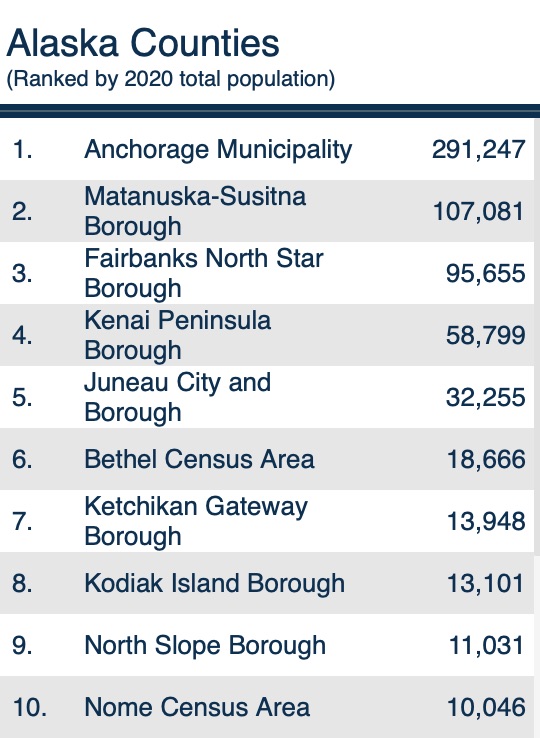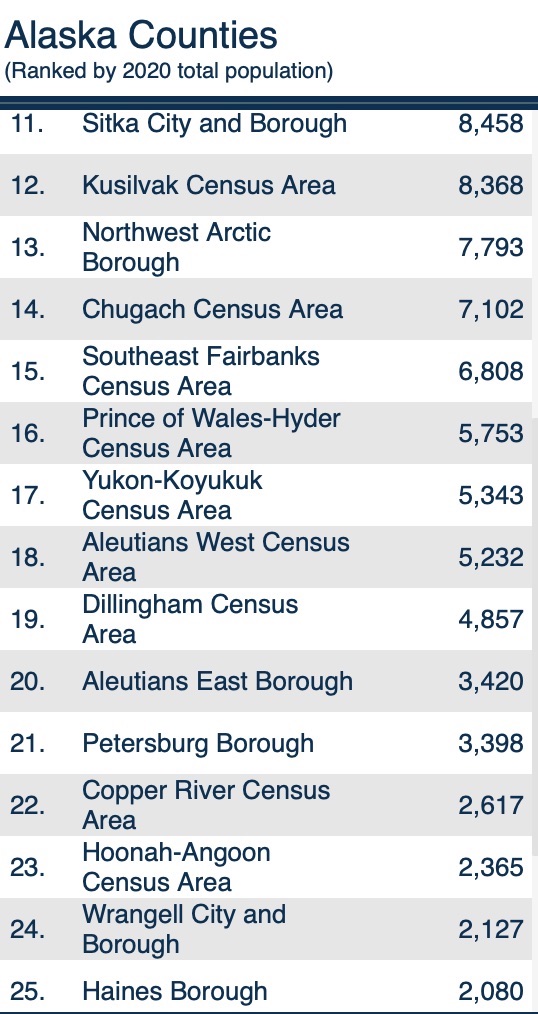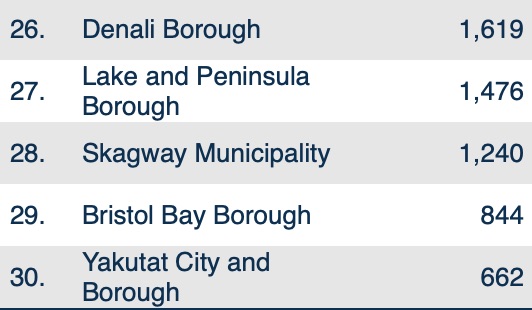Anchorage, the Mat-Su Borough, and Fairbanks North Star Borough are at the top of the population chart for Alaska, and Kenai is moving up the list.
Anchorage has inched downward population-wise in the 20 years since the 2000 Census, when there were 291,826 residents, while in that same Census, Fairbanks North Star Borough had 82,840 people, and the Mat-Su Borough had 59,322, which is about what the Kenai Peninsula Borough has in 2020.
Here’s the list from the U.S. Census:

Changes in the neighborhood
Ketchikan: 13,948, an increase of 3.5 percent
Sitka: 8,458, a decrease of 4.8 percent
Lake and Peninsula Borough: 1,476, a decrease of 9.5 percent
Northwest Arctic Borough: 7,793, an increase of 3.6 percent
Kusilvak: 8,368, an increase of 12.2 percent
Bethel: 18,666, an increase of 9.7 percent
Dillingham: 4,857, an increase of 9.2 percent
Kodiak: 13,101, a decrease of 3.6 percent
Haines: 2,080, a decrease of 17 percent
Denali Borough: 1,619, a decrease of 11.3 percent
Yakutat: 662
Hoonah-Angoon: 2,365
Prince of Wales: 5,753
Petersburg: 3,398


